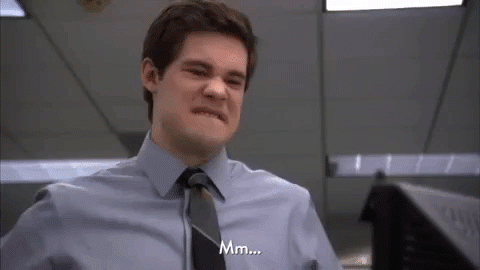
Interviews, the good, the bad and the time you cracked a joke and they didn’t laugh…
CommentGiven that I’ve had more than a few interviews in my lifetime, I’m sharing my tips on how to have a good one, but before that here are some memorable examples from my career so far.
The good
I interviewed for the 2012 Olympics in a massive skyscraper in Canary Wharf and felt I’d gone to heaven. I didn’t get the job, but it was a great interview, I had awesome feedback and was encouraged to apply again.
The interview lasted three hours with three parts; formal interview, writing test and role play scenario, somehow I survived it. I came out triumphant, satisfied with my performance, I didn’t get the job, I came second. Why is this good? Because I pushed myself out of my comfort zone, mentally coped with a three hour process and it came down to a bit of niche experience I didn’t have. I’m still proud of me.
The bad
I realised during the interview I really didn’t want the job and talked myself out of it during being questioned. Awkward.
I was asked what publications I read, I answered, “Heat magazine and Take a Break” and laughed, no one else laughed.
The ugly
The interviewer had some views I didn’t agree with and we sort of argued, I could tell she despised me, and the feeling was mutual… cringe.
I sent my prospective interviewer a text with two kisses on the end my mistake to which he replied “If I wasn’t gay, I’d blush”.
How to have a good interview:
Prepare
- If you don’t, you’ll fail.
- Where and what time is the interview? Don’t be late mun!
- Look at the organisation as whole – history, values, missions, news, events, staff, projects, services, case studies etc.
- Always look at their digital media – how and what are they communicating?
- Low key stalk the staff – LinkedIn isn’t your friend for this but make sure you know a little about the CEO and Senior Management.
Use STAR
Most interviews use behavioural questions, “Name a time when…..”, “Tell us about a time when you used your initiative….” etc and these require you to have interview stories and STAR is a technique of answering them.
These stories should involve real situations that demonstrate you are a capable person for the job and based on the personal profile and job role and responsibilities.
For example:
Essential: Can problem solve
Your story must reflect this, and a likely question is “Tell us about a time when you have had to overcome a problem”
S – situation, setting the scene
T – task, build on the situation – what is the task at hand? Be specific about your involvement.
A – approach – what action did you take?
R – result – what was the outcome?
If you use this method to create stories and practice them, you will face the interview armed with lots of scenarios to talk about in a structured format so you don’t end up waffling.
Wear something that makes you confident
You don’t have to turn up like Ru Paul. Even if it’s just a piece of jewellery, shade of nail varnish or a keepsake in your pocket, do something for you. Always try the outfit on beforehand, I once had to safety pin my trousers because I had lost weight and forgotten to buy a new pair in time.
Be human
Acknowledge everyone sat in front of you, make eye contact, smile, breathe, sip water to take a pause and acknowledge it’s ok to feel nervous.
Ask a question
Always do this, if you can’t think of any beforehand here are some ready-made.
Can you tell me about the culture of the organisation?
What are the biggest challenges the organisation faces?
Why do you enjoy working here?
Have an opinion
It’s always good to have some praise or constructive criticism ready. Think about what you like about the company – is their ethos good? a project you like? a blog post you read and enjoyed? and then think constructively – is there a little suggestion you could make or something that you’ve seen that could be corrected?
I once told a company they had a broken link on a pivotal part of their website and they were grateful. Having an opinion shows you’re engaged.
If you don’t have a good interview?
Fxck it, it’s ok, we can’t always have good ones, learn from the mistakes, ask for feedback, grow and move on.